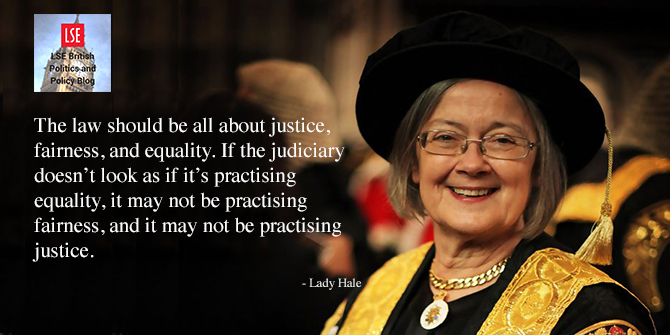 Last week MPs debated prisoners’ voting rights and voted overwhelmingly to continue to exclude them from voting and this week the Protection of Freedoms bill was introduced in order to ‘safeguard civil liberties and reduce the burden of government intrusion into the lives of individuals’: human rights are under discussion and under threat in the UK at every turn argues Conor Gearty, but as his new online project shows, the public are keener than ever to engage in important and topical debates about the right future for human rights.
Last week MPs debated prisoners’ voting rights and voted overwhelmingly to continue to exclude them from voting and this week the Protection of Freedoms bill was introduced in order to ‘safeguard civil liberties and reduce the burden of government intrusion into the lives of individuals’: human rights are under discussion and under threat in the UK at every turn argues Conor Gearty, but as his new online project shows, the public are keener than ever to engage in important and topical debates about the right future for human rights.
In October 2010 I launched The Rights’ Future: a collaborative online project exploring the history, development and current success of the human rights ideal, with all the dangers and compromises that such success has brought. Over the past twenty weeks an essay has appeared on The Rights’ Future weekly, alongside video posts and remarks on current developments in human rights issues, with readers invited to comment and discuss a wide range of ideas. The success of the project has been overwhelming, with readers replying with dedication and commitment, critically engaging with topics such as the power of unionisation, the place of the UN, the rights of animals and trees, and the merits of group rights. As the project now draws to an end, there are three vital lessons that we must take note of if the future of human rights is to continue to be discussed with passion in the UK.
Firstly, and perhaps most importantly, is the recognition that discussions on human rights are moving online. Through projects such as The Rights’ Future and also through social media platforms such as Twitter and YouTube, discussions of both academic and non-academic sorts are occurring outside of traditional forms such as printed essays and journals. These traditional forms still have their merits of course, but a thorough embracing of new platforms is also necessary for the positive survival of human rights discussions. There seems to be a real desire for new ways of expression and discussion, and a need for immediate engagement with human rights issues as they unfold by the hour. You can start trending on Twitter about a human rights subject and within a few hours be part of a discussion with hundreds of people, rather than waiting months for the publication of something in an academic journal or publication. Recent examples of human rights issues as Twitter trends are the events in Cairo and the case of Gary McKinnon; both are of high importance for the government and for the public, and it’s through online discussion that debates on these subjects continue to occur.
Secondly, an awareness that human rights issues can be found immediately and by anyone, and not located solely in abstract academic discussion, is vital. The project has shown that those involved in discussion are not necessarily educated, but are immensely curious and informed. Part of the project was driven by my own desire to demystify and de-jargonise human rights, making it accessible; people need to discuss topics that they can relate to, not just abstract concepts. There are routes in to human rights discussions laid out in front of us every morning in the papers and on our ways to work, and anyone can make multiple observations on a 30 minute commute. Contemporary examples, such as Cameron’s speech on the failure of multiculturalism in Britain or the basic rights of prisoners, can draw us all in to important debates on the policies being made by the government today.
Finally, if the right future for human rights is to continue being taken up, then debate and discussion must have an impact. Political impacts have in the past been difficult to make, but campaigns and activism are pushing us in the right direction, especially at a time when government cuts are affecting many people. In terms of the impact of the project, I hope that people can take away a sense of solidarity in a subject that perhaps hasn’t always allowed for this. I hope that people have felt their instincts articulated and are able to better understand their lives and the political impact they can make. Whether policy makers, students or a person on the street; whatever their interests, experience and connection to the debate on human rights, an impact must be the final step towards the right future for human rights.
Conor Gearty is discussing The Rights’ Future project as part of the LSE Literary Festival, at a debate entitled The House Believes that the Future of Rights is Left not Right at the LSE on Thursday 17 February. Click here for more information.
Click here to respond to this post.
Please read our comments policy before posting.





